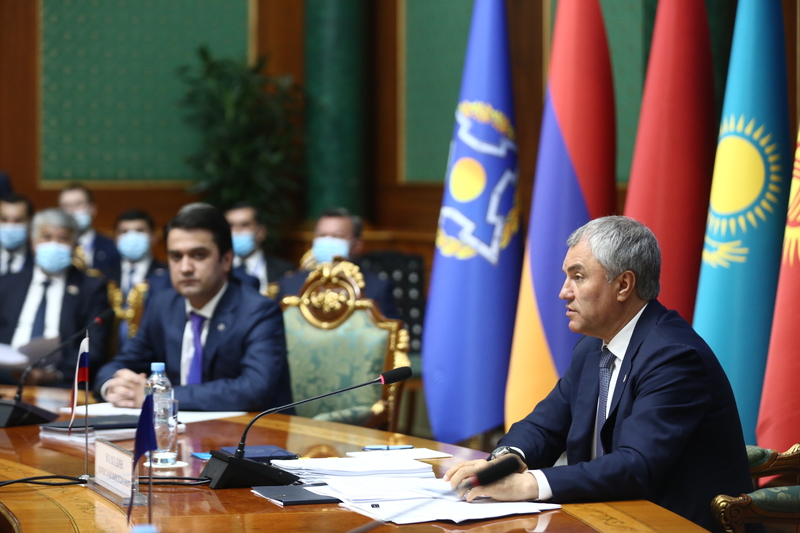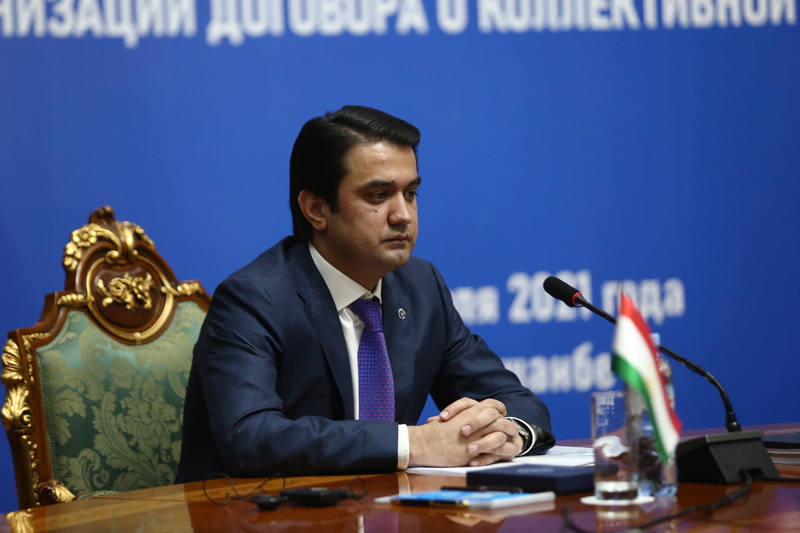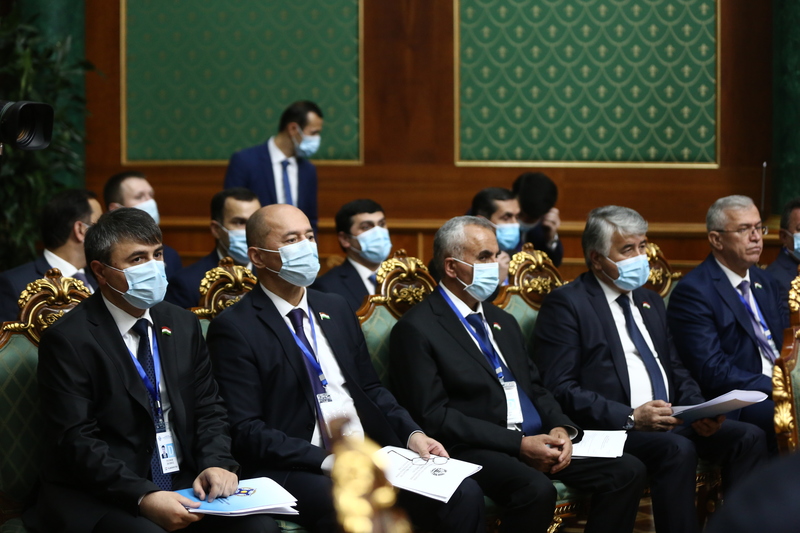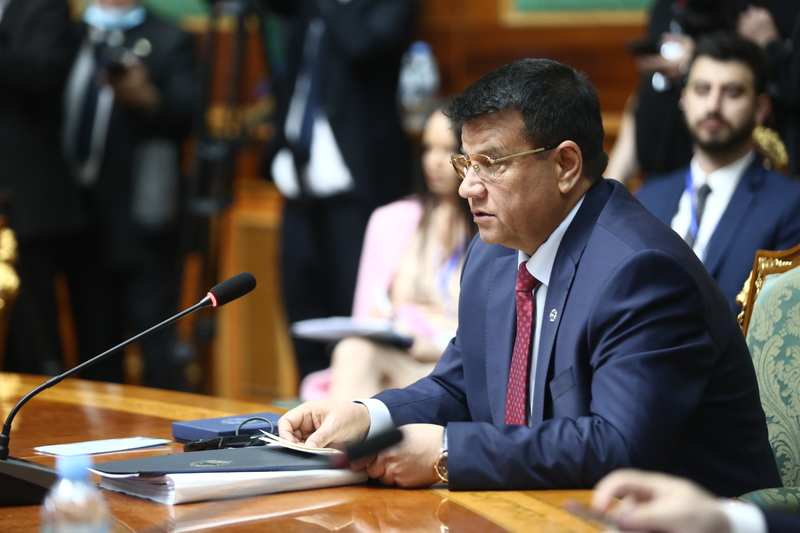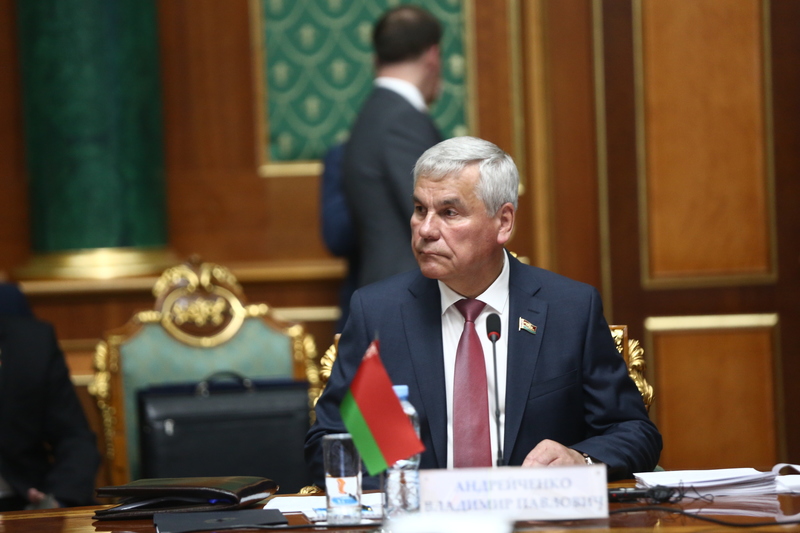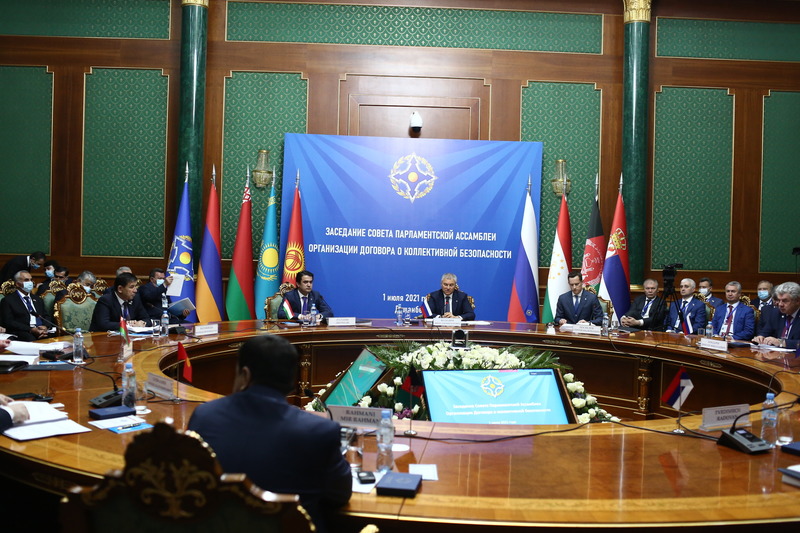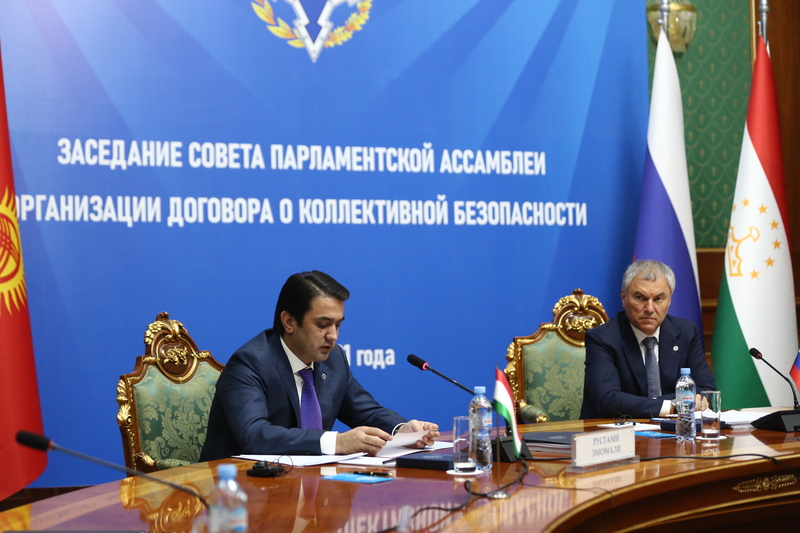At a field session in Dushanbe, Republic of Tajikistan, the Council of the Parliamentary Assembly of the Collective Security Treaty Organization adopted the Statement by the Council of the Parliamentary Assembly of the Collective Security Treaty Organization regarding the inadmissibility of foreign interference in the electoral processes of the Organization’s Member States.
The draft Statement was agreed upon by the parliaments of the CSTO Member States and approved at the session of the CSTO PA Standing Commission on Political Affairs and International Cooperation on March 19, 2021.
Vyacheslav Volodin, Chairman of the CSTO Parliamentary Assembly and Chairman of the State Duma of the Federal Assembly of the Russian Federation, said: “The adoption of the Statement will send a clear signal to our Western colleagues who will want to use international observation as another tool to discredit the upcoming elections in our states and will be a pre-emptive response to the expected Western interference in the upcoming elections.
Our election observation activities are becoming very much in demand in the CSTO countries. This is the most important tool to protect the sovereignty and voting rights of the citizens of the countries of our Organization.”
Presenting the draft Statement, Dmitry Novikov, deputy Chairman of the CSTO PA Standing Commission on Political Affairs and International Cooperation and deputy Chairman of the State Duma Committee on International Affairs, emphasized that the document was prepared with due consideration of the results of the elections held in a number of CSTO Member States in 2020 and the internal political events that followed them.
According to Dmitry Novikov, “These events were largely provoked from the outside, using advanced information and communication technologies.”
Mr Novikov said that the results of direct and remote international observation of these elections, including the elections held in early 2021, confirmed the maturity and sustainability of the electoral systems of the CSTO States, as well as “free, open and competitive nature of the elections, their full compliance with generally recognized universal and regional international legal standards and national laws.”
As Dmitry Novikov pointed out, this did not prevent “certain international regional and sub-regional organizations from subjecting them to biased criticism and assessments, while completely ignoring the obvious facts of direct and indirect external election interference by their Western participants.”
At the same time, Mr Novikov stresses, these same organizations have not noticed “interference in electoral processes of official diplomatic representatives of their member states, openly demonstrated for the first time; facts of wide use of advanced information and communication technologies for systematic dissemination of false information aimed at dividing and polarizing society and provoking the electorate into radical actions; and even the use of political censorship of online content without a court decision or a decision of other authorized bodies.”
All this, he stressed, shows the political bias of such actions and assessments, the use of double standards and the degradation of political culture, and that the member states and representatives of such international organizations have no right to try to impose any requirements on the CSTO Member States to carry out electoral processes.












